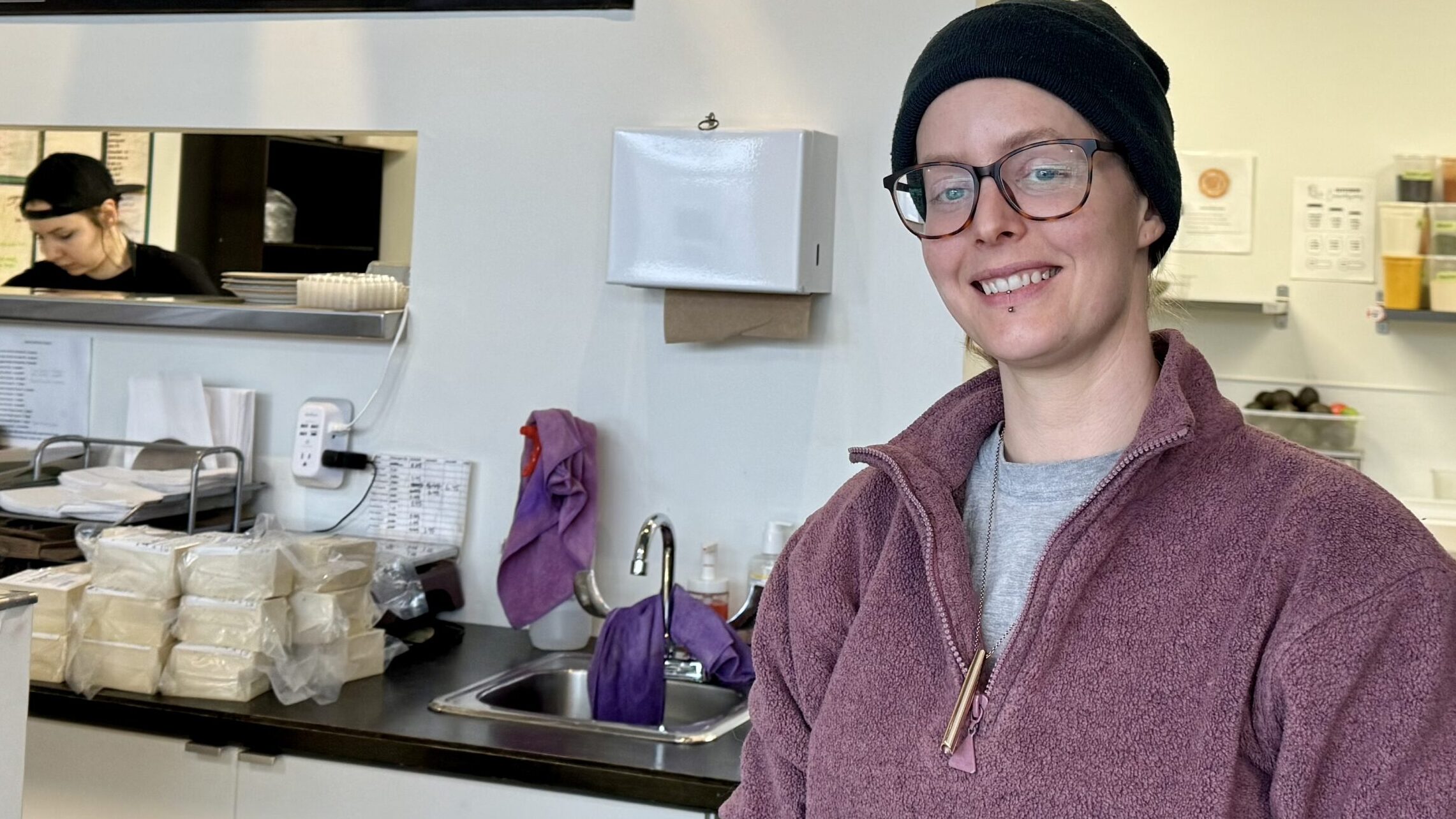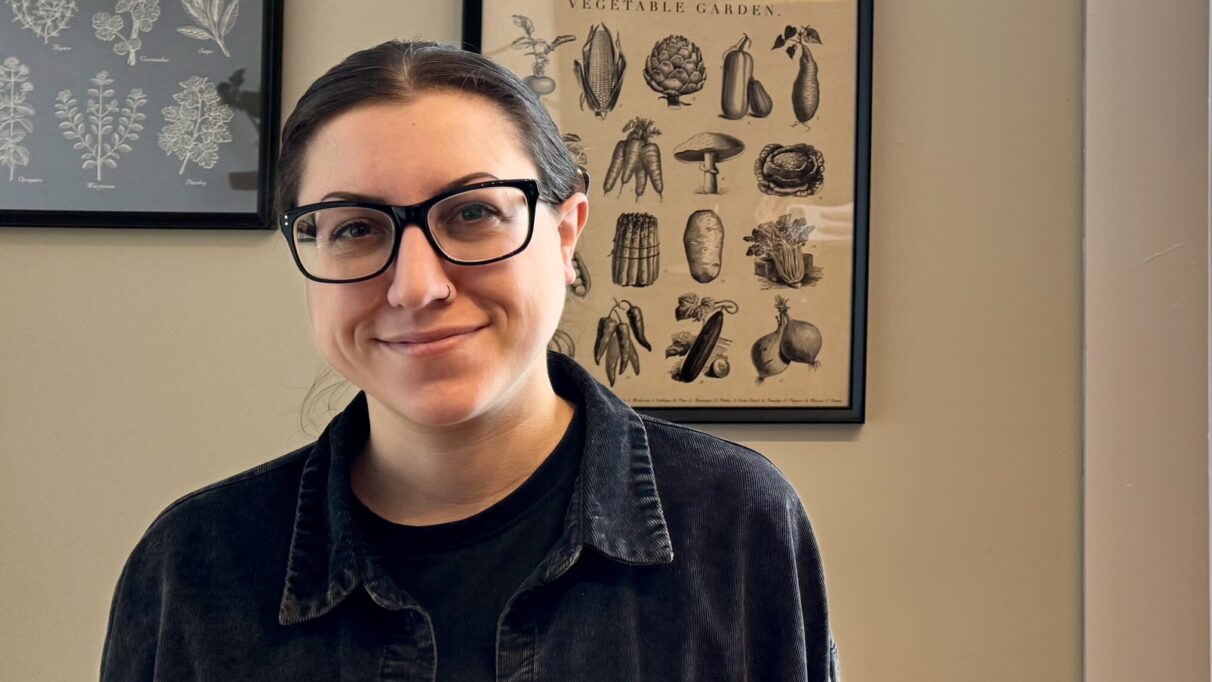Veganism no longer ‘out in left field’
Interest is growing in plant-based diets – and options aren’t limited to beans and lentils

caption
Jessie Doyle stands in front of the kitchen at Springhouse Market.When Jessie Doyle first sold kale chips at the farmers market in 2011, she had to put bouquets of kale on the table to show people what the chips were made of.
“People thought it was seaweed,” she says, recalling how unfamiliar the term plant-based diet was at the time. “It’s pretty wild to think of how much our local food culture has changed so much in 10 or 12 years.”
Today, Doyle owns Springhouse Market on Gottingen Street, a plant-based restaurant and Halifax’s first plant-based grocery market. Most of their customers are not vegan or vegetarian.
“(With) the rise in plant-based eating, people feel like they don’t have to go vegan, they can eat plant-based food when they want, as often as they want,” she said.
About 6.4 million Canadians follow a diet that restricts meat either partially or entirely, according to a 2018 Dalhousie University study.
Ashley South led a plant-based cooking session at Captain William Spry Library last week, an event that reached maximum capacity. South, a registered dietitian with the community health team in HRM, said a lot of people are turning to plant-based diets for more than ethical and environmental reasons.
“I think it comes back to people being more conscious of their health and wanting to make positive changes to improve their health,” said South.
A study published in the British Medical Journal last month observed 702 participants to determine whether a relationship existed between the infection of COVID-19 in people who consumed a plant-based or vegetarian diet, compared to those with an omnivorous diet. Results suggested participants who followed plant-based and vegetarian diets had 39 per cent lower odds of infection with COVID-19.
South said some people are even adopting what she calls a ‘flexitarian’ approach — following a diet that is plant-forward. She said it is suitable for people who are trying to increase their plant-based intake without limiting themselves to one category.
She said plant-based eating can be more cost effective in today’s market.
The cost of chicken breasts per kilogram was $11.19 in December 2018, according to Statistics Canada. In December 2023 it was $14.10.
“It’s much more economical to buy a bag of dried beans or a can of lentils to add to your soup to get your protein in than some beef or chicken,” said South.
Meg Norris has worked at enVie, a vegan kitchen in Halifax, since it first opened their doors in 2013.

caption
Meg Norris is one of the managers at enVie in the North End.“I remember seven eight years ago, we’d have people come in and it would be the vegan daughter bringing her parents in and they only wanted to eat potato wedges or fries ’cause everything else might have sounded weird,” she said.
Now, she says, plant-based eating is more accessible in Halifax, and it isn’t as “out in left field” as it once was.
“We have a couple guys coming in on their lunch break that probably, on other days, are having steak and potatoes,” she said. “But today, they’re coming in and trying a cauliflower steak or a vegan pad thai.”
Norris said the restaurant industry is facing tough times, with inflation and the lingering effects of the pandemic.
“I think just having options for everyone on your menu makes it more likely that those people are going to come through your doors.”
And for people who follow a plant-based diet, dining in town is not as difficult as it once was. For Norris, this means she no longer feels pressure to check a menu before eating out.
Doyle echoed her thoughts. She said, “It doesn’t feel like a really weird question to ask, ‘Oh do you have anything vegan?’ ”
Doyle added that while there are several reasons people turn to plant-based diets, she thinks it makes people feel good emotionally.
“Most of us love our pet cats and dogs,” she said. “We know deep down that pigs and cows are not that different even if we’ve been socialized to think of them as very other than the animals we love.”
About the author
Raeesa Alibhai
Originally from Toronto, Raeesa Alibhai is in her fourth-year of the Bachelor of Journalism (Honours) Program at King's. She is fond of all forms...
